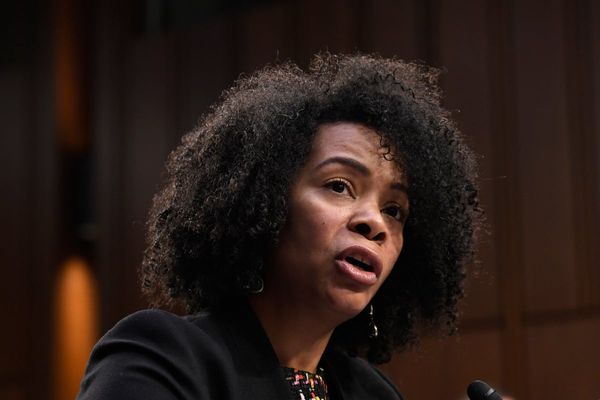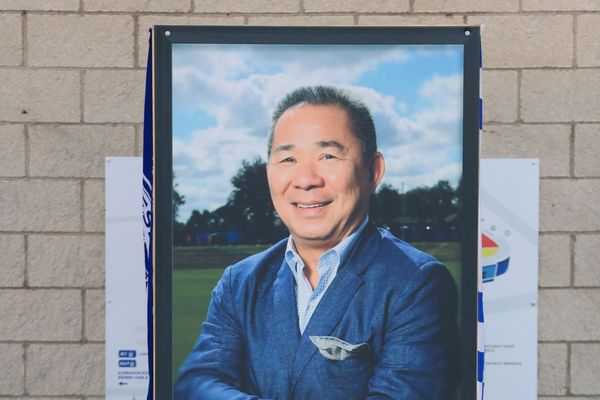
There is a sense of foreboding to Ivory Coast’s upcoming presidential election, due to be held on Oct. 31. The last time Ivorians went to the polls against the backdrop of fractious political debate and elevated intercommunal tensions, in 2010, the result was widespread violence that left at least 3,000 people dead.
That year the election pitted then-President Laurent Gbagbo against opposition leader Henri Konan Bédié and former Prime Minister Alassane Ouattara, the country’s current president. The vote sparked significant unrest when the Electoral Commission declared Ouattara the winner, but Gbagbo, supported by the Constitutional Council, refused to stand down. Ouattara, with the assistance of Forces Nouvelles rebels, France, and the United Nations, seized the presidency, and Gbagbo was later sent to the International Criminal Court, where he was tried for crimes against humanity, only to be acquitted in January 2019.
This year, the election, which had looked like it might include those very same politicians—Gbagbo, Ouattara, and Bédié, all of whom remain key political figures in Ivory Coast—now appears to be a much more solitary affair for the president.
Ouattara had initially intended to stand down from politics ahead of the 2020 poll and pass power on to “the next generation.” However, when his anointed successor Amadou Gon Coulibaly died suddenly in July, he said he would stand in his place. The opposition has perceived this as deeply controversial because the constitution allows for only two presidential terms, and yet this will be Ouattara’s third, should he win. Ouattara claims he can stand for a third term because a new constitution was introduced in 2016, effectively resetting term limits early in his second term.
By contrast, Gbagbo, although he had sought to stand, was disqualified on Sept. 14, along with 39 other politicians who had declared their candidacies. Meanwhile, Bédié and Pascal Affi N’Guessan, two of the only four candidates who were allowed to run, have called for an “active boycott” of the election, indicating that their supporters should use all legal means to prevent the vote from taking place. The only remaining participant who will contest the poll against Ouattara is Kouadio Konan Bertin, an independent candidate who commands little broad support.
Ouattara has succeeded where Gbagbo could not in 2010. He has made the election into a one-horse race. Although Gbagbo had repeatedly delayed the 2010 election during Ivory Coast’s lengthy civil war that occurred between 2002 and 2011, he eventually agreed to face off against both Ouattara and Bédié. Gbagbo was president of a nation at the time that was divided between north and south, and in which French and U.N. troops manned a cease-fire line in the middle of the country. Forces Nouvelles rebels, who supported Ouattara, occupied the north, following a failed coup attempt on Gbagbo’s government in 2002, which triggered the civil war.
Ouattara faces rather different circumstances. Crucially, he has a much firmer grip on power. He has no rebel force opposing him and has managed, following a series of mutinies in 2014 and 2017, to bring the army under tighter control. Meanwhile, he has forced one of his most prominent adversaries, the former head of the National Assembly and leader of the Forces Nouvelles Guillaume Soro, who had some power over the army, into exile. There is no longer a U.N. mission based in the country, and France, which in Gbagbo’s later years grew increasingly troubled by his presidency, is very much in favor of Ouattara.
French President Emmanuel Macron and Ouattara have met since the Ivorian president declared he would stand for a third term, and while Macron has urged him to ensure elections take place peacefully, and relations have become more tense since Ouattara’s declaration, there has been no open criticism of this move. Ivorian opposition figures have complained that France has not publicly condemned the third-term bid, especially since the French president had so widely praised Ouattara’s initial decision to retire from politics ahead of the poll.
Additionally, Ouattara, unlike Gbagbo, has made the forthcoming vote so controversial and lacking in legitimacy that the opposition has been left with few choices but to boycott it. The Constitutional Council’s ruling on Sept. 14 that Ouattara could stand for president, but so many opposition candidates could not, cemented the sense that it was being manipulated by the presidency.
Further, the Electoral Commission has long been seen as disproportionately advantageous for the ruling party because the opposition believed there were too many seats within the commission allocated to either the ruling party or its supporters. Extensive negotiations with the opposition have been undertaken to address this, but the opposition continues to regard it as illegitimate.
The commission now has 16 members, including one representative designated by the president; one by the minister of territorial administration; seven representatives of political parties (three representatives from the ruling party and four from opposition parties); six civil society representatives, including one from the National Commission for Human Rights and one from the legal profession; and one representative from the Superior Council of the Judiciary. The opposition regards the human rights commission and the Superior Council of the Judiciary as too close to the ruling party. This remains contentious, because it has the potential to elevate the government’s power within the commission.
The composition of the Electoral Commission has been so controversial that Affi N’Guessan recently withdrew the less radical wing of the Ivorian Popular Front, which he leads, from the opposition seats of the institution, leaving the opposition with only one of its four mandated seats filled. Thus, neither the commission nor the Constitutional Council, the two institutions charged with overseeing the election, are perceived as credible.
Recognizing this, the opposition had pledged to unite against Ouattara and establish a barrier to his third term. They called first for a campaign of civil disobedience, then for the intervention of France and the U.N., claiming that unless Ouattara withdrew his candidacy and the commission and the Constitutional Council were dissolved, there could be no election. However, as time has gone on it has become increasingly apparent that these demands will not be met, and the election is likely to go ahead regardless. The boycott is, then, a sign of desperation and a last-ditch effort to undermine the legitimacy of the poll, which Ouattara has made virtually unwinnable for anyone other than himself.
Internal divisions and a lack of planning on the part of the opposition have not helped matters. While Ouattara has toured the country announcing new infrastructure projects and increased the farmgate price of cocoa, attempting to win over the nearly 20 percent of Ivorians who rely on this “brown gold” to earn a living, the opposition has been conspicuous by their absence from the campaign trail. They were frozen by the challenge of organizing a coherent election bid in an unfair race.
Even if the politics of the 2020 election are rather different from those of 2010, there remain some parallels with 2010.
That election took place against a backdrop of ethnic tension, which had been mounting for decades, manipulated by politicians for their own gain. This remains the case to this day. Whereas Gbagbo, an ethnic Bete from the southwestern town of Gagnoa, was renowned for his politics of exclusion and his marginalization of the Dioula communities of the north, Ouattara has been accused of giving too much prominence to northern communities. Bete and Guere people, who typically hail from the southwest, feel particularly excluded by Ouattara’s presidency, while he has also failed to resolve long-running tensions over access to land in the center and west of the country. As the election draws closer, some of these animosities have been rekindled by electoral tensions.
Bédié remarked in 2019 that Ivorians should never be made to feel like foreigners in their own country. This was a clear reference to the historical policies of exclusion of so-called foreign ethnic groups, who originated in the north of the country but who had parents from northern neighbors Burkina Faso and Mali, that had stoked so much animosity in the 1990s and 2000s. More recently he has upped the ante again by commenting that he thinks the election could result in a “civil war without precedent” in Ivory Coast. The government has done little more to quell rising tensions. Amnesty International has accused the government of using quasi-militias to put down opposition demonstrations.
The likelihood of violence has only been exacerbated by the opposition’s call for a boycott, in which it said its supporters should do everything in their power to legally prevent the distribution and the collection of electoral materials in the country, as well as to impede campaign meetings held by the ruling party. Although the opposition has been careful to stipulate that these actions should remain legal, there is much room for these attempts to descend into violence as the government seeks to push ahead with the vote.
In the aftermath of Ouattara’s declaration that he would stand for a third term in August, violence broke out in several cities around Ivory Coast, resulting in the deaths of at least 15 people and the burning down of several local restaurants. These clashes were sparked by local protests by those in favor of, or opposed to, Ouattara, which rapidly escalated.
There seems little doubt that similar violence will occur in the lead-up to this poll and will follow the announcement of the October results. The credibility of the election is already in doubt, and, with many of those who are opposed to Ouattara furious that he will likely remain in power beyond his constitutionally mandated two terms, similar local-level clashes are likely to break out around the country.
The 2020 election in Ivory Coast is the culmination of a gradual trend toward authoritarian rule. Ouattara held credible, free, and fair elections in 2015 and was initially widely regarded as a liberal, democratic leader. Yet his decision to force one of his main rivals, Soro, into exile in December 2019—after issuing an arrest warrant for his alleged involvement in a coup attempt in Ivory Coast—and to imprison many other opposition figures and members of civil society who criticize his regime has epitomized a drift toward authoritarianism. Standing for a third term and bending the constitution to his will is the nail in the coffin of the once democratic leader who, it had been hoped, would pull Ivory Coast out of its years of cyclical conflict.
Ivory Coast is not the only country in West Africa that appears to be moving steadily away from democratic governance. Guinea has recently seen its incumbent stand for a third term, while the longtime authoritarian leader Faure Gnassingbé in Togo also raised eyebrows when he, using a similar logic to that employed by Ouattara in Ivory Coast, was reelected for a fourth term in February, despite the constitution ruling that only two terms are permitted. Civil society activists in Benin have increasingly protested against unfair electoral rule changes and arrests of opposition supporters, while Ivory Coast’s northern neighbor Mali witnessed a coup in August.
These are worrying signs for a region that once appeared to be almost totally democratic. In 2015, it was only the votes of Gambia and Togo that prevented the Economic Community of West African States from introducing a ban on third terms. Now this scourge is becoming much more widely accepted in the region. Indeed, Freedom House reported in March that West Africa experienced the fastest decline in political rights and civil liberties last year.
The fact that both France and the United States appear to be turning a blind eye to the manipulation of the constitution in Ivory Coast suggests that Ouattara’s move is likely to go unchallenged and may lay the foundations for future leaders in the region to trample on delicate democratic norms in the years to come.







